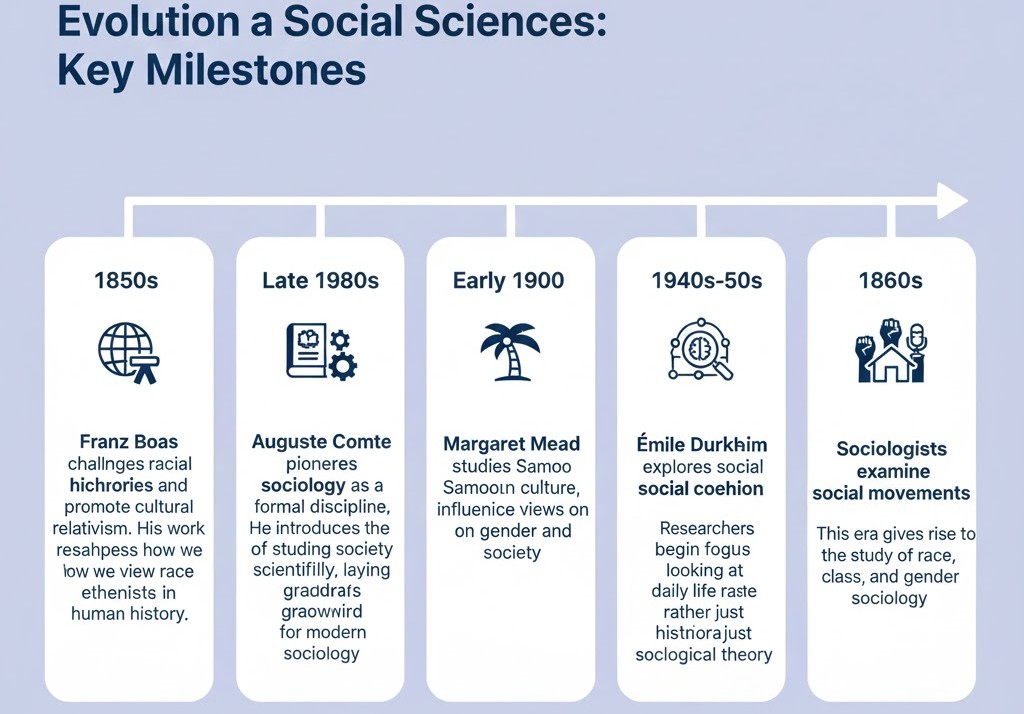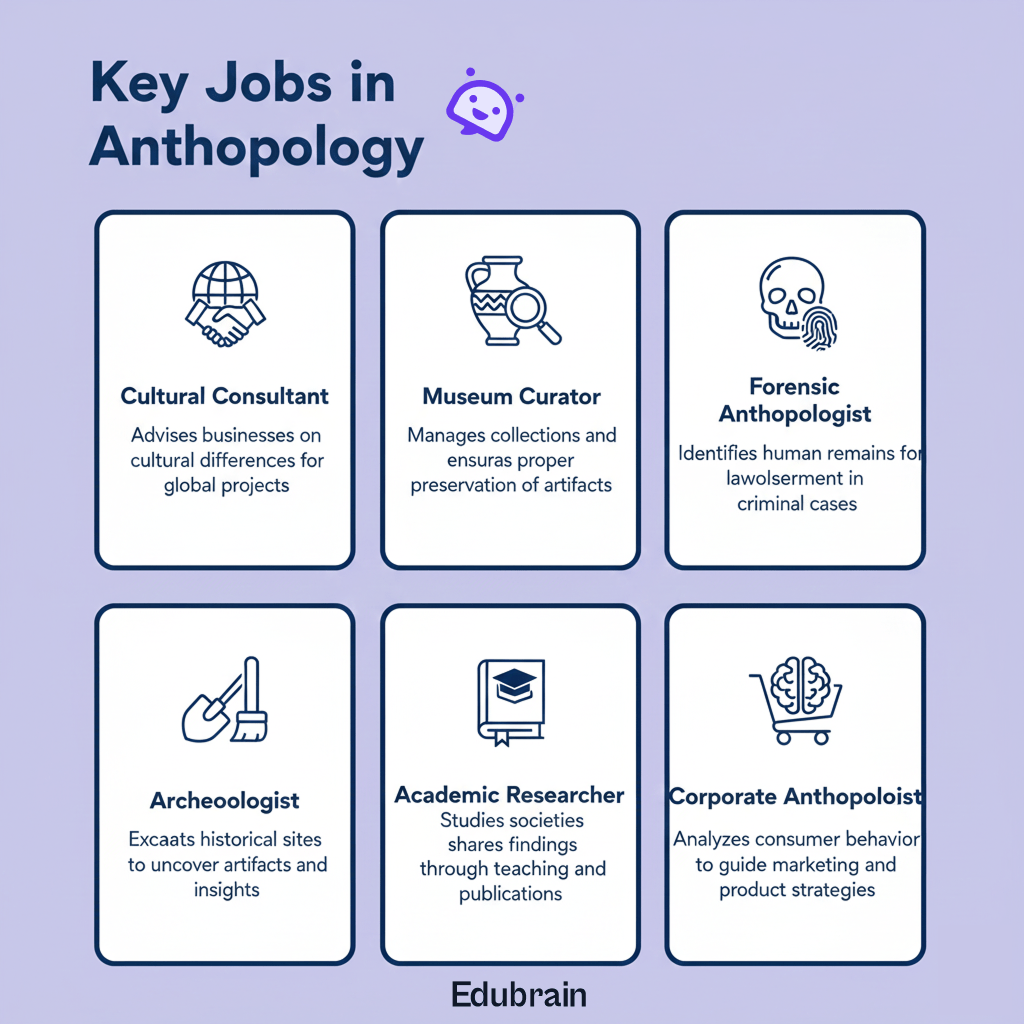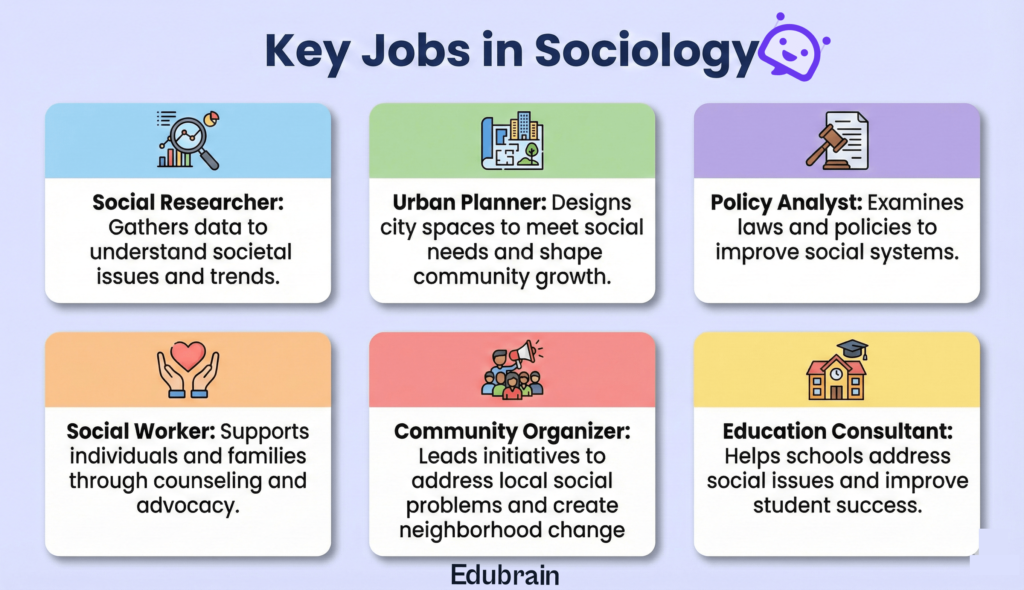Behavioral psychology, often called behaviorism, studies how the mind affects behavior. It analyzes why people behave as they do by...
Differences and Similarities Between Anthropology vs Sociology
Anthropology and sociology are two key fields in the social sciences that help us understand human society and human beings. They both analyze human behavior, though in contrasting ways. Anthropology focuses on culture and history. Anthropologists work with those whom they study. Sociology focuses on contemporary society. Sociologists study data and facts to understand social behavior. The article compares anthropology majors in both disciplines in terms of emphasis, approach, and job opportunities. The contrasting perspectives from which each defines human existence set the two apart.
Table of Content
ToggleWhat is Anthropology?
Anthropology studies people and their societies, both past and present. It tries to understand different cultures and how they change over time. Anthropologists work in several main areas:
- Cultural Anthropology: Looks at people’s beliefs, social practices, and daily life. It shows how cultural norms vary across different regions.
- Archaeological Anthropology: Studies physical remains like tools, pottery, and bones. It helps piece together life in past societies, much like solving a puzzle.
- Biological Anthropology: Focuses on human evolution and development. It examines fossils and primates to learn how humans adapted over time.
- Linguistic Anthropology: Analyzes language use in shaping social identity and group relations. It explores how language shapes our perspective and interactions with the world.
Students studying anthropology often need help in related areas, such as anatomy. The anatomy AI solver is a great resource for helping with complex anatomical structures. Anthropology’s main goal is to discover what makes us human. Anthropologists study societies to find unique and shared aspects of human life. Their findings reveal the many ways people live around the world. They enhance our understanding of cultural diversity.
What is Sociology?
Sociology studies how people interact in groups, how societies change, and why people behave the way they do in social settings. It examines all aspects of how people behave in groups, from how we act within our families to how whole societies change. Sociologists use various theories and methods to look at social structures and interactions. They might analyze anything from how people of different ages live together to how social movements rise and fall. Their tools help them see patterns and predict changes.
Main Focuses: Sociology’s main focus is understanding how and why societies function. Sociologists explore race, gender, and class. They examine how these factors affect people’s lives and social groups. This focus helps them understand the bigger picture of social life.
Sociology shows us the unseen forces that shape our actions and lives. Unlike anthropologists, who might focus more on cultural variations and human history, contemporary sociologists dig into how societies work today. They look at the roles and rules that organize our world. This understanding can help us make better decisions and understand others around us.
Historical Development of Anthropology and Sociology
Anthropology began during the Age of Exploration. Explorers documented the cultures and peoples they encountered globally. By the 19th century, scholars began conducting systematic studies of human diversity. Franz Boas, often called the father of American anthropology, challenged racial prejudices. He highlighted the importance of fieldwork and understanding cultures from their perspectives. Margaret Mead also contributed by studying Samoa in the 1920s. Her work influenced how we think about culture and gender roles.

Sociology started in the early 19th century as the Industrial Revolution changed societies. This period raised new questions about social changes and problems. Auguste Comte, the originator of the term “sociology,” believed in the scientific study of societies. He thought that such inquiry could help solve social issues. Émile Durkheim, another foundational thinker, formally established sociology as an academic discipline. He explored how various social class structures and cultural norms can influence individual behavior. He also studied how they affect social cohesion and feelings of disconnection.
Methodological Differences Between Anthropology and Sociology
What is a key difference between anthropology and sociology? Both aim to understand the human beings’ behavior. But they use different methods and focus on different times.
- Anthropology’s Approach: Anthropologists often look to the past to inform the future. They study ancient civilizations to understand modern human behaviors. Their work usually involves fieldwork and ethnography. Fieldwork means living among the people studied for months or years. This immersion helps anthropologists observe the day-to-day lives and cultures of a community. Ethnography is about creating detailed descriptions of these cultures based on firsthand observations.
- Sociology’s Approach: In contrast, sociologists tend to focus on contemporary issues. They examine how societies function today and what factors influence behavior now. Common tools include surveys and statistical analysis. Surveys collect specific information from groups of people at a single time. Statistical analysis interprets this data, revealing trends and patterns within societies. For students seeking extra guidance in this area, sociology assignment help from EduBrain is available to provide personalized support.
So, what is the difference between anthropology and sociology? An anthropologist might, for instance, live with a tribe in the Amazon for a while in order to observe their social structures and day-to-day interactions. Meanwhile, a sociologist might survey many people. They want to see how social media affects family relationships. They would use statistical software to analyze the results. Anthropology studies human life throughout history. It looks at both ancient and modern societies. Sociology, in contrast, focuses on current social dynamics. It seeks to understand how these dynamics impact individual and group behaviors today.
| Attribute | Anthropology | Sociology |
| Time Focus | Past and present | Present |
| Methodologies | Fieldwork, Ethnography | Surveys, Statistical Analysis |
| Example Study | Living with a tribe in the Amazon | Surveying the effects of social media |
| Key Study Approach | Immersion in diverse cultures | Analysis of contemporary social issues |
The Focus Areas
Both anthropology and sociology cover human behavior but in a different form. Anthropology studies humans in a general form and branches out into four forms, each with its approach. Archaeologists dig up tools and pots to learn about life in the past. Biological anthropologists study humans and their evolutionary development. Biological anthropologists analyze bones and humans’ adaptations to environments over centuries. Anthropologists researching cultures go and reside in such cultures.
Anthropologists view life in a community in an attempt to understand customs such as language, food, and clothes. Anthropologists who research language study its role in shaping humans’ views and understandings of the social world. Sociology, in contrast, studies social issues in modern times. It observes modern social structures, such as communities and society, at a larger level and their impact on human behavior. Sociologists study and dissect how race, gender, and wealth affect humans’ social and daily lives.
However, both fields have produced influential figures whose work has profoundly affected human biology and our understanding of humanity.
- Zora Neale Hurston: As an anthropologist, she immersed herself in Southern U.S. cultures, gathering and preserving the local folklore.
- Patricia Hill Collins: A sociologist who has extensively explored how personal and social identities are shaped by race and gender, offering profound observations about African American women’s experiences.
- Gustave Le Bon: His studies on crowd behavior show how peaceful groups can suddenly turn chaotic, offering a timeless perspective on group dynamics.
Career Opportunities
Studying anthropology or sociology can lead to many job opportunities beyond traditional research or fieldwork. Graduates find that their skills are valuable in various sectors.
- Anthropology Careers: Anthropologists aren’t limited to academic roles. They work in corporate offices, government agencies, and nonprofits. In the corporate world, they help companies understand consumer behavior and conduct market research. Corporate anthropologists typically earn around $62,000 per year. Government agencies hire them to evaluate the impact of public projects and programs, with starting salaries around $55,000. In nonprofits, they design programs that support communities, often earning around $50,000.

- Sociology Careers: Sociologists have a range of career options, too. They work as urban planners, social workers, counselors, and consultants. Urban planners, who help shape community spaces, typically earn about $65,000 per year. Social workers and counselors help people navigate life challenges, with salaries ranging from $40,000 to $60,000 depending on experience. School counselors or consultants can earn between $50,000 and $70,000.

Both fields teach critical thinking and problem-solving, which are essential in any job. Graduates can work in teams, analyze problems, and find solutions. Many also continue their studies with advanced degrees. A master’s or doctorate can lead to teaching, consulting, or specialized research roles. For students exploring broader social topics, a helper for political science can provide extra support. Whether working in business, education, or public service, a degree in anthropology or sociology offers flexible career paths with strong job potential.
Conclusion
Anthropology and sociology explore human behavior, but they do it differently. Anthropology focuses on cultures over time, often by researchers living with the people they study. Sociology looks at how today’s social setups influence our behavior, using surveys to find patterns. Learning about both gives a fuller picture and deep understanding of human societies. Anthropology helps us see how cultures have changed and interacted over the years. Sociology shows us the current social patterns and why they matter.
By combining insights from both sociology or anthropology, we better understand why people act the way they do, across both past and present. This knowledge is vital for tackling social issues and valuing human diversity.
Explore Similar Topics
Some may find geography uninteresting. Yet, it holds lessons for daily life. It’s not just a subject that you either...
Canada is one of the best places for international students who want to study in a safe and welcoming country....

